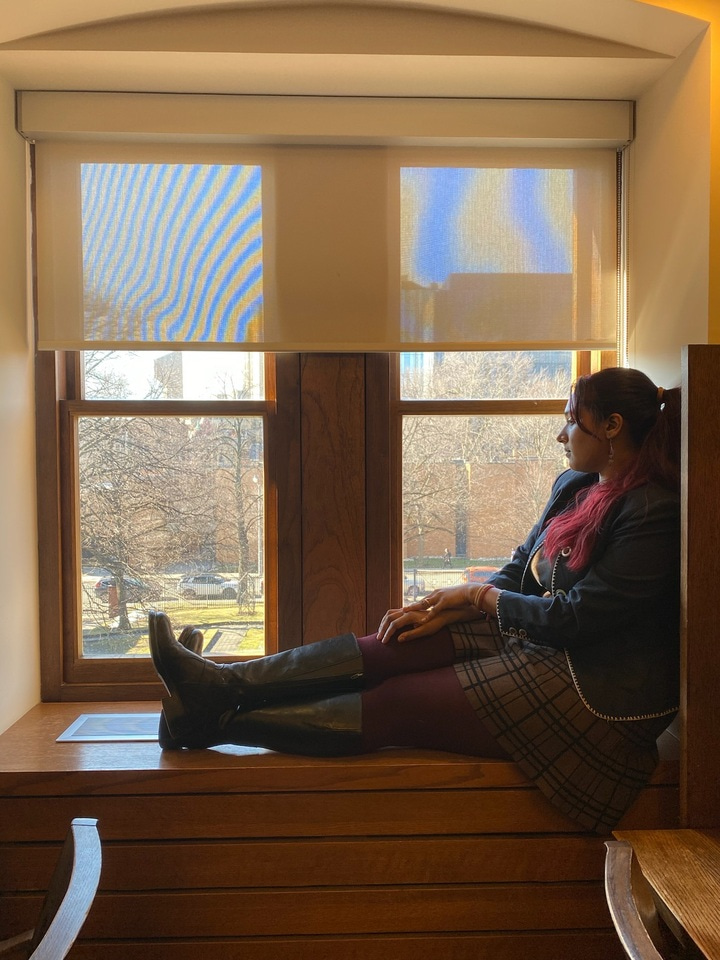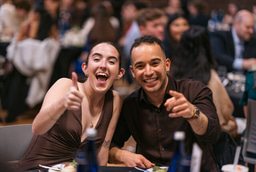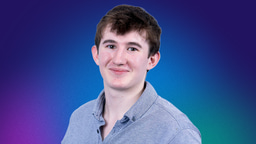Can we use technology to solve social justice issues? Tentative reflections from someone who spent their summer trying to do just that.

This summer, I was privileged to participate in a Laidlaw Undergraduate Scholars Leadership-in-Action (LiA) experience, in collaboration with a team of start up professionals based in Toronto and a climate justice group in Cambridge, United Kingdom. In the context of the climate crisis, the COVID-19 pandemic, global geopolitical destabilization and conflict, the fragility of the complex, global supply chains is becoming evident.
Across the world, different folks are developing understandings of what cause these interconnected crises. Although we may quibble about what the causes for these crises are, I think most would people agree that it is important to build local resiliency to build some safety against these precarious global situations. In my project, I developed a minimum viable product of a community-based bartering application where people can trade items or services that they have, for items or services that they need. In my view, this was significant because it was a way of imagining, incubating, testing, and birthing one of many possible alternative realities into being.
In addition, it was also significant because it was my first experience working on creating an app. As an ecology, environment, and immunology student, I am more comfortable and used to being steeped in topics such as biology, statistics, science research, and activism.
Technology and development 101: A crash course into the scariness of learning a new coding language, then applying it to abstract problems.
Although doing something new means that it was hard, it was also very fulfilling: I’m really grateful to have learned a lot of new skills, both technical and conceptual. First, my challenge was that our team was not able to secure a full-time volunteer for software development. To begin with, the first bottleneck on our team was that we didn’t have a core member who had sufficient experience with front-end software engineering. On our team, there are two members – me and another person – who have some coding skills, but neither of us have the level of experience needed to build an entire, fully-functional app.
Before my project began, I reached out through various networks to find somebody with more experience who might have been able to assist us with the technical aspects of creating the app. However, I wasn’t able to find anyone who was a good match for us this summer. At the beginning of my summer project, I was considering the value of expending more effort in finding someone or simply investing time in developing core technical competencies which would allow me to do it myself.
In the end, I decided that because I already had some proficiency with two programming languages, that it would be best for me to spend some time learning JavaScript, which is a programming language that is commonly used in front-end development. At the beginning of my journey with learning some of the core skills, the open-endedness of it all was what overwhelmed me the most; it felt like I was suddenly totally out of my element, without the clear guidance and structure of school to support me. I felt quite anxious that I wouldn’t be able to learn enough to create what I had envisioned in my mind before the summer began. As someone whose temperament tends towards structure, routine, and predictability, this shift in my role from leading the project to being the developer for the project was scary. After two days of rabbit holes which I didn’t even scrape the surface of in search of resources, I felt quite over my head. There seemed to be a million-and-one resources where I could learn a seemingly endless array of different skills, all of which seemed to have contain scary sounding words in them like ‘Version Control,’ ‘Integrated Development Environment,’ ‘API,’ and more. Beyond this, I was having trouble concretizing what the minimum viable product would look like. What I wanted to create felt like an abstract blur in my mind, and the tool I had to create it with – JavaScript – felt foreign and unwieldly in my hands.
Seek out support (SOS): A senior software engineer gives supports me through mentorship and advice
A thousand tabs open, many hours of YouTube videos later, I broke out of the solitude that I prefer in moments of difficulty and reached out for help; although this might seem quite simple to an outsider, this happens to be something that is very hard for me to do. In my difficult moments, I tend to withdraw further into myself rather than reaching out for support. I have spent the last few years becoming aware of this, questioning what stories I have been carrying around asking for help, and consciously unlearning the behaviour of isolating myself in the moments when I could most use support.
The conversations I had with the software engineer were so very helpful. I left them feeling capable, resourced, and oriented towards an achievable vision for what our team could achieve within the time that we had this summer with the competencies which we had access to. In our first meeting, I asked them for advice regarding resources that I could access to learn some of the basic skills needed to write competent, functional code.
As they happened to be a self-taught coder – something which gave me much hope for myself, if I stayed the course over time – they recommended that I try completing a course on Codecademy on JavaScript and Git. In some of our next conversations, they also recommended me other resources such as a book called the Pragmatic Programmer, which I bought and began working my way through. They also recommended a specific Integrated Development Environment (IDE), which I understand as the application on which a person can write code in; just as Microsoft Words or Apple Notes are different applications where a person can write written text, different IDEs are applications where engineers can write their code in.
Using an IDE to write my code was new to me, as I had previously written my code in other environments like Jupyter notebooks and R Studio. When I shared that with them, they were kind enough to spend an evening with me setting up and using the IDE which they had recommended to me (Webstorm). In all, I’m very glad that I asked for help. Although it was difficult for me to be vulnerable and admit my overwhelm to another person, it was really helpful for me to receive so much direct support from somebody with so much experience. I doubt that without their support, I would have been able to get as far as I did in my project this summer. From this experience, I learned that the value of collaboration far outweighs the difficulties of asking for help.
Techno-skepticism in activist communities: New perspectives help me see potential ethical concerns with app-based social justice interventions
In activist circles that I ran within this summer, I read and learned more about both folks who work in the technology industry and folks who do activism. During this time, I noticed that there was some tension between the worldviews of these different groups. While the folks who I worked with in tech seemed more likely to be – although I never explicitly asked –be techno-optimists, the folks who I interacted with seemed more likely to be skeptical of the role of technology in making the world a better place. If I’m honest, I still don’t know exactly where I stand on this spectrum between “I think technology is amazing and we should make lots more of it!” and “Technology isn’t the answer to the crises that we have created, in fact it might be a large part of the problem.”
Although I don’t have an answer to my views on the topic, I appreciate that I was able to speak with activists who were skeptical of the use of technology to solve social problems. In many cases in my experience, some of my most nuanced, well-considered perspectives have come through a process of being exposed to folks who have had different life experiences and have arrived at different conclusions regarding some of the foundational ideas that I have about the world. As a result of various conversations, I’ve begun thinking more about technology – which is the medium that my summer project was developed in. Especially with the rise of generative AI, social media, and more in the last decade, I’m beginning to take a stronger stance towards ethical technology. Where I stand now, I believe that technology isn’t inherently bad or good; it might be a part of helping build resiliency against crises, but I’ve also begun to consider what risks technology might have. By doing so, I’m able to build ethical technology, right from beginning; to me, considerations of ethics surrounding the technology I’m helping create must be a constant consideration, not an afterthought once I have a completed application.
Conclusion: This summer, I’ve learned and grown so much as a human and by extension, as a leader as well. I’ve learned when I’m stuck or feeling buried in learning a new thing, that it can be so valuable to vulnerably reach out to someone who has more experience to ask for support. I’ve also learned that there are many resources available to learn any given new skill: picking a few to stick with, even if they aren’t objectively the best, will help much more than trying to find the objective best resource to learn the new skill.
I’ve also been able to connect with folks who have different experiences and perspectives around technology, which may have made me more aware of a possible ethical blind spot with developing an application. As we continue to develop the app beyond the Laidlaw project, I believe this will help me: I’ve met and built relationships with folks who are willing to speak critically, candidly, and respectfully to me. In the future, I’ll carry many of the lessons – both discussed here and those which I didn’t have the space to speak about in this article – to whatever experiences in leadership that I might be privileged to have.



Please sign in
If you are a registered user on Laidlaw Scholars Network, please sign in